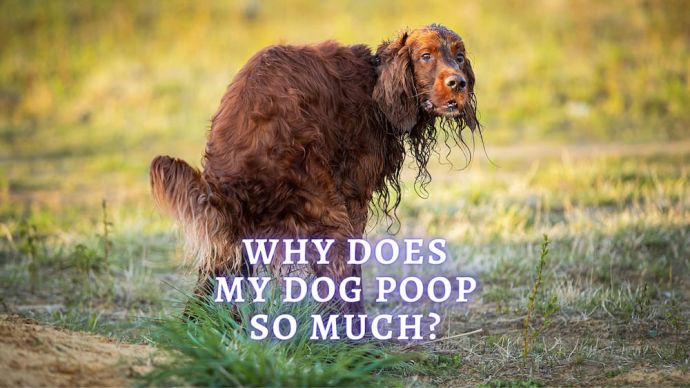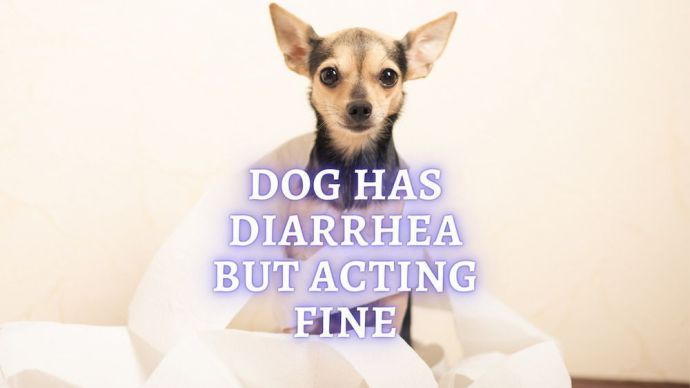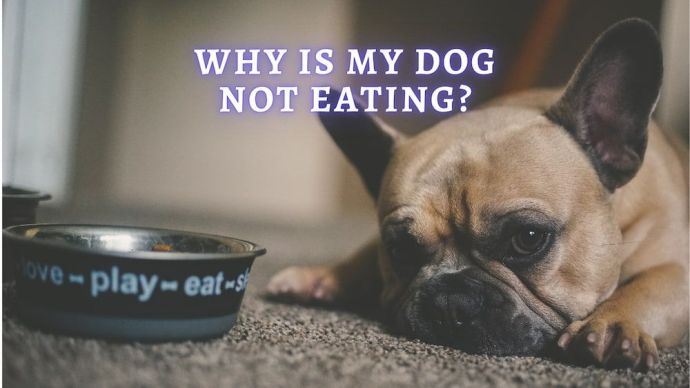Dog is Dying of Cancer and How to Deal With Pet Loss
Written by:
Author: Alina Andreeva
Alina A. is a professional writer, editor, and pet-lover. She has published over 50 articles on how to care for pets properly. Alina has been writing articles for 3 years, so she has considerable experience in this niche. Her natural curiosity helps her to expand her knowledge and learn new pet care life hacks, which will make your life much easier.
View all 79 articlesLearn about our editorial process and veterinary review board.
Viewed: 407
Updated on: 06/25/2021
With dogs now living longer than ever, cancer is becoming an increasingly common diagnosis seen in older pets. Experts at the AVMA claim that 25% of all dogs will suffer from cancer at some point in their lives. The same can be said of 50% of all pets over the age of ten. As cancer within dogs and other animals becomes more prevalent, it is more important than ever to know how to spot the warning signs, what steps to take, and how best to prepare yourself for the worst-case scenario.
What are the signs of a dog dying from cancer?
There are a number of signs that your dog may be suffering from cancer. Whether you are already aware of cancer within your pet or not, you should still be on the lookout for these signs. They could either prompt you to take your dog to the vets or help you decide whether your pet is enjoying a good quality of life.
The signs include:
- Labored breathing. Your dog is taking short and sharp breaths, seems to have difficulty breathing, and appears to be forced.
- Lethargy. Your dog appears lethargic and way below its normal energy levels.
- Defecation – Your dog has lost the ability to defecate and urinate as normal. In some cases, they may still be able to carry out these functions but do not have the strength to move away from the mess once they are finished.
- Sleep. Your dog is finding it difficult to sleep and always seems restless during the night.
- Moaning. Your dog is making unusual and uncharacteristic moaning noises.
- Social. Your dog seems far less social than usual. Perhaps they are hiding from people or are uncharacteristically aggressive.
How can I help my dog to pass away?
There are treatments available to achieve remission or even a cancer cure in dogs; however, this is not always the case. There comes the point when the quality of life argument comes in to play, and you must decide what is best for the happiness and health of your dog. Upon taking your dog to the vets, they will be able to identify where cancer has spread and how severe it has become. This is done using an adapted TNM scale, as they evaluate the size of the tumor, the lymph nodes, and the metastasis.
Once you know that your dog has cancer and whether it is treatable, you should continue to monitor their day-to-day lives. Watch out for the warning signs that indicate a poor standard of living. Perhaps keep a chart and mark the good days against the bad days. You should also discuss with family and friends who know the dog well and decide whether they still have a good quality of life or not. It can help to have a second or third opinion when making such a decision. Remember that your vet is always on hand to offer professional advice too.
If you do eventually decide that euthanasia is the kindest option for your dog, contact your vet and set up an appointment. These procedures are designed to send your pet off with dignity, comfort, and without pain. While this is never an easy or nice decision, it is often the most humane one when the time comes.
READ MORE: Best Dog Food for Cocker Spaniel
Why is losing a pet so painful?
A pet becomes part of the family, especially when you keep an animal with a longer life span, such as a dog. By the time this beloved pet has been with you for 10-15 years, it is only natural that it should feel painful to lose them. The sense of loss and heartache that you feel when losing a pet is the same natural mental reaction that we experience when losing a loved one. Therefore, it is important to treat it with the same attitude and allow yourself time to mourn.
How long does it take to get over a pet’s death?
Coping with the loss of a pet is always extremely difficult. How you feel and how long it takes you to move past the event often depends on several factors. Sudden deaths without warning are often the hardest to deal with as you were afforded no time to prepare for such an event. A dog dying slowly from cancer allows you more time to accept and prepare for their eventual death. The longer you have had the pet under your care, the harder their end will likely hit you. If they have been a part of the family for 15 years, losing them will take some time. The important thing to remember is that your feelings are natural. The human body and mind deal with death and loss in the same way, no matter whether the deceased is a dog or a human. Allow yourself time to mourn, have a funeral for your canine friend, take some time off work, cry, and spend time with your loved ones. There is no set time that it will take to get over a pet’s death, you must simply give yourself all the time you need.
 Dog Care My Dog Keeps Sneezing: 6 Health Reasons Why Your Dog Won’t Stop Sneezing (Vet Approved)
Dog Care My Dog Keeps Sneezing: 6 Health Reasons Why Your Dog Won’t Stop Sneezing (Vet Approved) - 65
- 0
 Dog Care Why Does My Dog Poop So Much? Determining A Healthy Poop Schedule For Your Dog
Dog Care Why Does My Dog Poop So Much? Determining A Healthy Poop Schedule For Your Dog - 184
- 0
 Dog Veterinary Tips Tear Stains on Dogs: How to get rid of tear stains on dogs? (Vet Advice)
Dog Veterinary Tips Tear Stains on Dogs: How to get rid of tear stains on dogs? (Vet Advice) - 104
- 0
 Dog Veterinary Tips Why is my Dog throwing up: Causes and Preventing (Veterinary Advice)
Dog Veterinary Tips Why is my Dog throwing up: Causes and Preventing (Veterinary Advice) - 23424
- 5
 Dog Care Why Is My Dog Bleeding From Its Butt? Causes and treatment of rectal bleeding in the dog
Dog Care Why Is My Dog Bleeding From Its Butt? Causes and treatment of rectal bleeding in the dog - 22076
- 0
 Dog Care My Dog Keeps Scratching His Mouth: Reasons Why Your Dog Scratching Face
Dog Care My Dog Keeps Scratching His Mouth: Reasons Why Your Dog Scratching Face - 17561
- 1






















